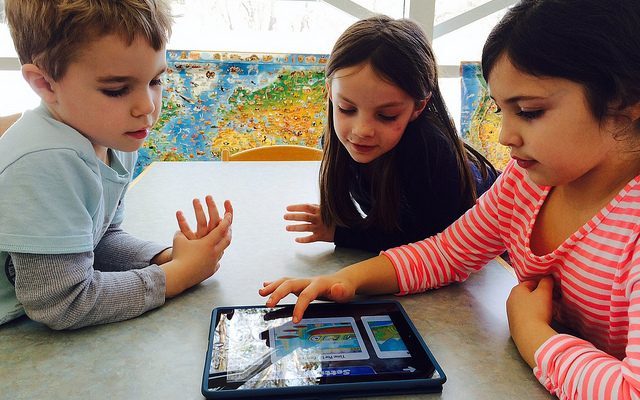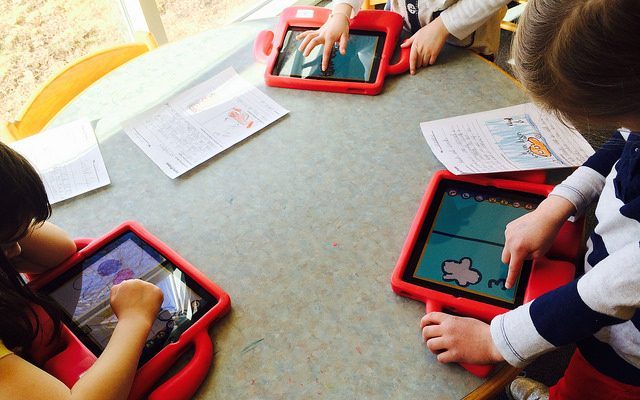How Teachers Can Gamify Science

Gamification of all subjects has become increasingly popular in K-12 and higher education. The introduction of games and technology into the classroom provides many unique experiences for children that enhance subject area knowledge. In particular, games offer children and young adults a hands-on approach to course content which provides additional motivation for students to learn and understand the curriculum. Gamification is the process of adapting elements of game-play to other activities, like learning a new concept, to foster engagement with that activity.
There are many subject areas that can be gamified; however, games can be particularly helpful when teaching students science-based lessons. Educators can use two primary methods to gamify a particular subject or curriculum. Teachers can incorporate science-based games into their curriculum, or they can find ways to create a game-like experience within the structure of the coursework. The first method, adding games into the curriculum, can be easier for teachers to incorporate into lesson plans.
There are many types of games available that can be used in the classroom to enhance student learning including video and board games. For teachers that are looking to add free science-based video games to their curriculum, the Educational Gaming Environments group has three available: Impulse, Quantum Spectre, and Ravenous. These games were used in several science courses as mentioned by Rebecca Vieyra, Teon Edwards, Elizabeth Rowe, and Jodi Asbell-Clarke in their article PLAYING with Science.
Vieyra, Edwards, Rove, and Asbell-Clarke also reported that they utilized video games by incorporating them into their lesson plans and pairing them with instruction, “Having students play the game before classroom activities give them background experience. During class, students can play games related to instruction about physics concepts with ‘teachable moments’ as students encounter challenges.”
Teachers can utilize a similar design with any relevant game by organizing lessons to allow time for playing games and provide corresponding instruction on the topic. The key to using games in the classroom is to make sure that they are paired with additional material and incorporated into assessments.
For educators interested in modifying their course structure to incorporate game elements, there are several components to consider including competition, rewards, levels, cooperation, and feedback. Tara Kingsley and Melissa Grabner-Hagen, the authors of Gamification, describe how one teacher designed his curriculum to incorporate these elements, “Mr. Wallen first transformed his existing science curriculum into ‘quest chains,’ or roadmaps for instruction.”
In this scenario, students used an iPad with the 3D GameLab platform to obtain experience points and badges, while competing against themselves to complete quests. The course material was incorporated into the platform and multimedia was added for students to view at various points within the quests.
Additionally, the 3D GameLab platform utilized scientific terminology within the game’s structure to reinforce the curriculum. Kingsley and Grabner-Hagen mention how teachers can create a similar design, by following a few important steps as they integrate games into their curriculum. First, students will need to be trained on how to use the technology that will be necessary for the games. Second, consider developing the curriculum into a series of assignments or activities that build upon each other. Third, offer students the opportunity to choose between assignments and have some control over their own learning. Finally, implement assessment strategies that are low-risk for students. Provide students with frequent assessments that offer opportunities for additional practice and repetition until proficiency is achieved. When teachers implement these strategies students will be more focused on learning the material and attain a higher level of proficiency.
When teachers gamify their curriculum, they should ensure that games are incorporated into instructional activities using a design that allows students to learn concepts at their own pace, receive feedback on progress, and provide repetition. When adapted correctly, gamification can provide many benefits to student learning including engagement, collaboration, and the acquisition of twenty-first-century skills that are necessary for a successful introduction into the workforce.
Teachers at any level can gamify science with a few modifications to their lesson plans. The key for gamifying any lesson is that it should be fun for the students. When students are engaged with the material, knowledge acquisition will occur more easily as students begin to enjoy learning.






